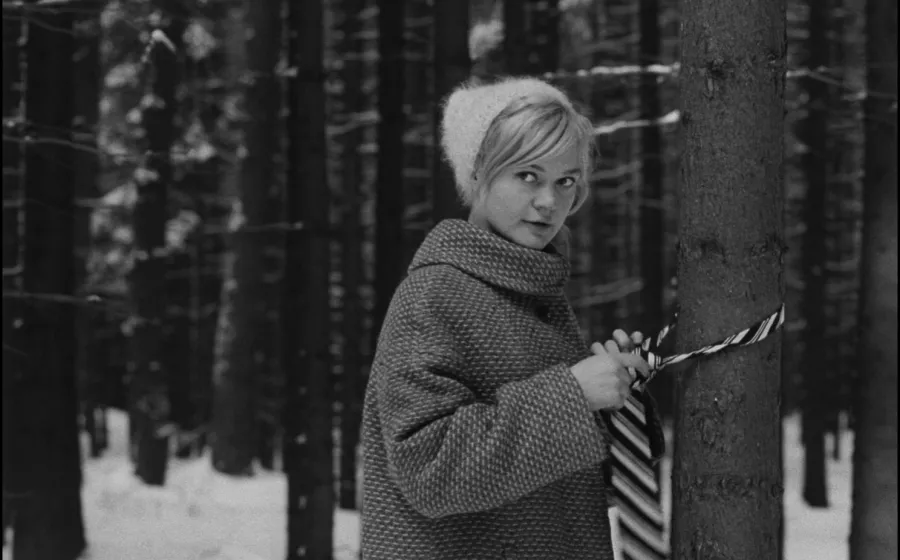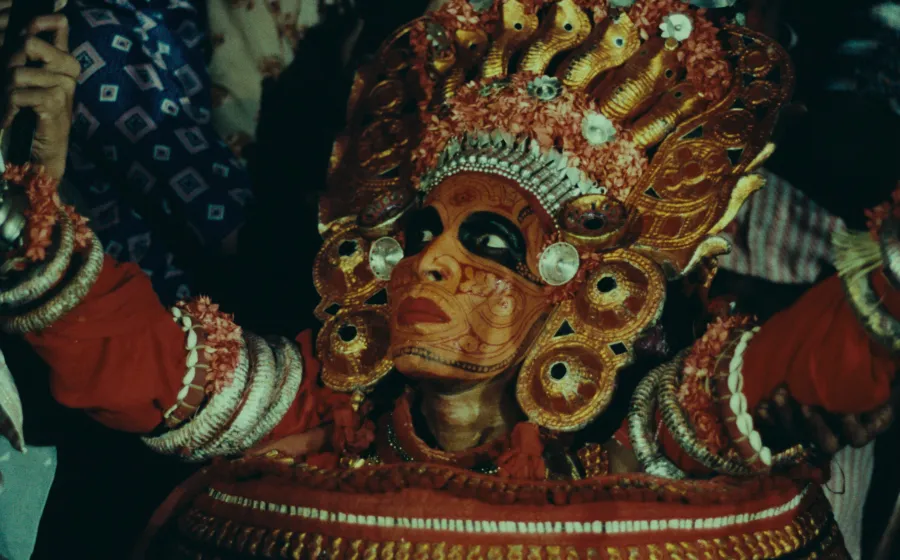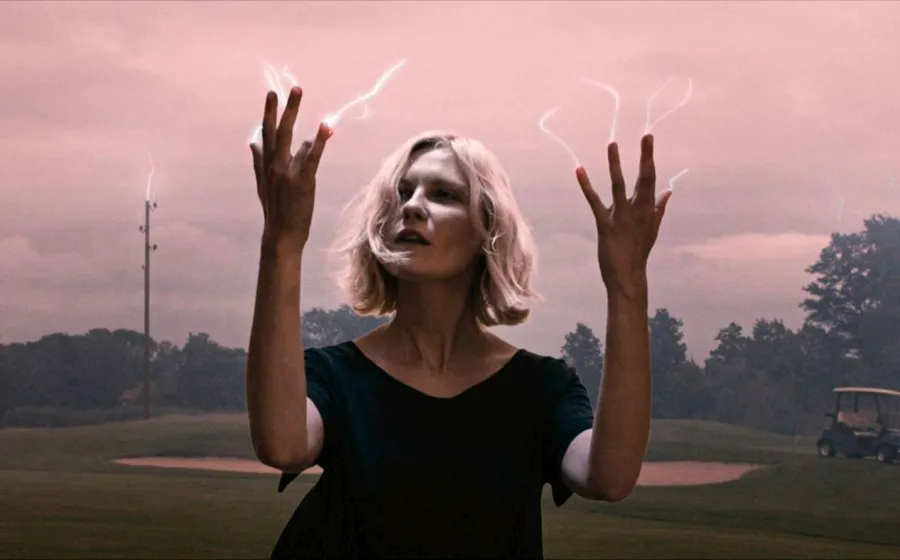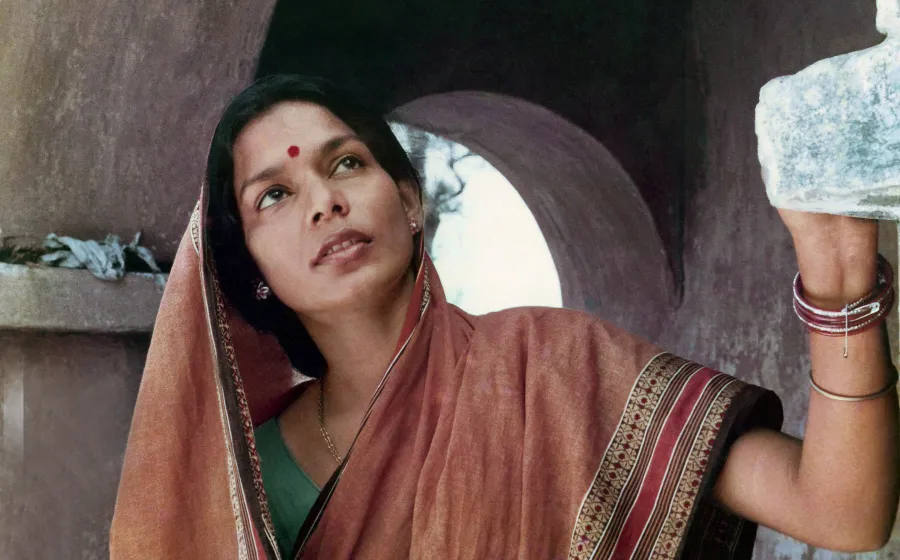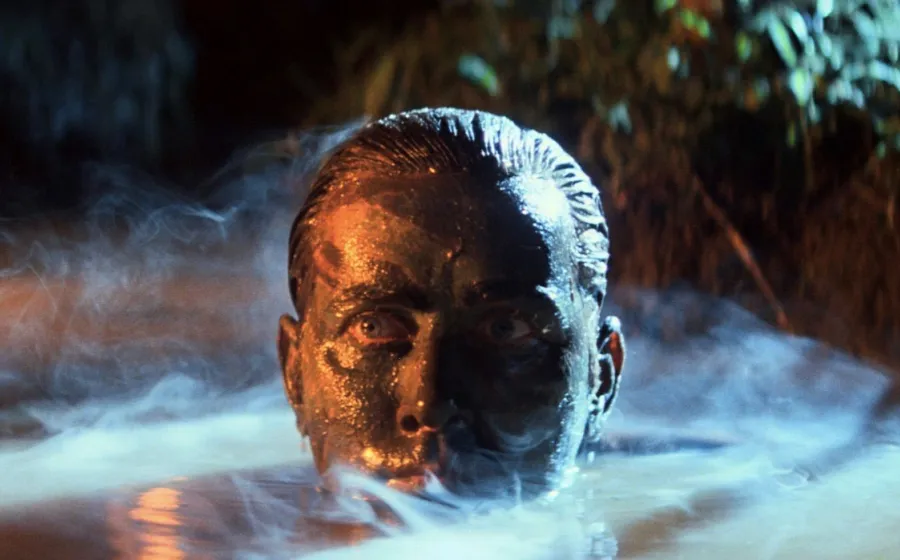Cinema and mysticism, visions of the apocalypse, and hidden legacies mark the season opening at Cineteca Madrid
> The cycle “Czech Cinema of the 60s” presents 13 works that go beyond the New Wave and reaffirm the power of aesthetic dissidence.
> “Visions of the Apocalypse” takes audiences on a film journey through the end of the world in metaphysical, political, and emotional keys.
> Brays Efe and Miguel Agnes bring an irreverent and luminous take on their favorite films in the new cycle “Linterna.”
> Among the premieres, Denise Fernandes with Hanami and Moisés Salama Benarroch with No sea tu falta explore the intimate and the symbolic.
> Greek artist Theo Triantafyllidis at the L.E.V. Matadero festival and young programmers from CineZeta close the program with digital immersive simulation and audiovisual performance.
Cineteca Madrid, part of the Department of Culture, Tourism and Sports, opens the season with an invitation to look beyond the visible. Through films that question, reveal, and move, September’s programming delves into the multiple ways in which cinema has explored the inexplicable and the transcendent. From the collective spiritualities of Indian cinema to dystopian end-of-the-world fables, and the aesthetic rebellion of Czech cinema, the new lineup proposes an intense, critical, and deeply sensory film experience.
In addition, Cineteca Madrid incorporates this month two new proposals that expand its sensory and discursive horizon: on one hand, the collaboration with the L.E.V. Matadero festival, which transforms Sala Plató into a digital ecosystem in constant mutation thanks to Drift Lattice, the immersive installation by artist Theo Triantafyllidis; and on the other, the launch of the cycle “Linterna,” where Brays Efe and Miguel Agnes open a monthly space to rethink the cinematic canon through humor, conversation, and shared perspectives.
Cycle “Spiritual Journeys. Rescuing the Legacy of Indian Cinema”
Five masterpieces of Indian cinema, restored by the Film Heritage Foundation and virtually unknown outside their country, make up this cycle programmed in collaboration with Play-Doc. The selection travels through diverse geographies, languages, and sensibilities, united by a single drive: to explore the sacred as vital experience, social conflict, or poetic overflow. Filmed between the 1970s and 1990s, these works offer a unique look at the ties between faith, community, myth, and body, revealing a cinematic legacy as dazzling as it is urgent to rediscover.
Ghatashraddha (Girish Kasaravalli, 1977) addresses with austere sensitivity the fate of a young widow expelled from her community for transgressing religious norms: a stark portrait of social punishment carried out in the name of the sacred. Manthan (Shyam Benegal, 1976), in contrast, finds hope in peasant organization and the transformative power of cooperation: a story of collective faith that becomes a political allegory. Both films pay close attention to rituals, but also to how social structures can be resisted or reinvented from within. A cinema that, with astonishing beauty, reveals the invisible and transforms each story into a rite of passage.
Ishanou (Aribam Syam Sharma, 1990) delves into a more intimate, rarefied spirituality: the story of a mother who, after being chosen as a priestess by an ancestral force, must leave her family to embrace a destiny between the human and the divine. A transition between planes of reality that dialogues with Kummatty (Aravindan Govindan, 1979), where a sorcerer who turns children into animals introduces magic as everyday experience. Both films blur the boundaries between the visible and the invisible, between the real and the fabulous.
The journey closes with Māyā Miriga (Nirad Mohapatra, 1984), a family chronicle infused with melancholy, observing with precision how traditional hierarchies crumble before the push of a new modernity. Together, these films reveal a cinema that turns the spiritual into form, the intimate into territory, and the collective into memory.
Cycle “Czech Cinema of the 60s. Beyond the New Wave”
This cycle offers an expanded look at one of the boldest and most creative moments in European cinema. Beyond the iconic names of the Czech New Wave, here we recover 13 films that, between 1961 and 1970, defied censorship with symbolic intelligence, corrosive humor, and formal experimentation. A cinema that found in metaphor, fable, and the everyday new forms of resistance and reflection, turning poetic gesture into a vehicle of dissidence and absurdity into a tool of clarity.
The program opens with The Devil’s Trap (František Vláčil, 1961), a black-and-white parable about superstition and religious repression that anticipates many of the concerns of the cycle. In Black Peter (1963), Miloš Forman tenderly yet painfully portrays youth alienation, while Something Different (Věra Chytilová, 1963) confronts the female domestic universe with a gaze free of artifice. Satire reaches its height in A Day, a Cat (Vojtěch Jasný, 1963), a political fable in which a magical cat reveals, through its colored eyes, the hidden emotions of a town’s inhabitants.
The cycle also makes room for short but radically intense works, such as Fugue on the Black Keys (Drahomíra Vihanová, 1964) and Diamonds of the Night (Jan Němec, 1964). To these are added key pieces like Loves of a Blonde (Miloš Forman, 1965), Long Live the Republic! (Karel Kachyňa, 1965), Coach to Vienna (Karel Kachyňa, 1966), and All My Compatriots (Vojtěch Jasný, 1968), exploring the tension between memory, body, and power. The program closes with a final triptych of unsettling beauty: The Cremator (Juraj Herz, 1968), A Wasted Sunday (Drahomíra Vihanová, 1969), and Valerie and Her Week of Wonders (Jaromil Jireš, 1970).
Cycle “Visions of the Apocalypse. Cinema for the End of the World”
Curated by cultural critic Felipe Rodríguez Torres, this cycle addresses the many ways in which cinema has imagined collapse: invasions, pandemics, spiritual crises, delirium, and resignation. Far from spectacle, these films are meditations on fear, loss, and suspended beauty at the edge of the abyss.
From the cyclical dystopia of 12 Monkeys (Terry Gilliam, USA, 1995) to the cosmic nostalgia of Melancholia (Lars von Trier, Denmark, 2011); from the anarchic delirium of Week-end (Jean-Luc Godard, France–Italy, 1967) to the monumental vision of Apocalypse Now: Final Cut (Francis Ford Coppola, USA, 1978/2019); through Invasion of the Body Snatchers (Don Siegel, USA, 1956) and the animated gem Anzu, Phantom Cat (Yoko Kuno, Nobuhiro Yamashita, Japan, 2024), the cycle invites reflection on what remains when everything collapses. A seminar will accompany the screenings to explore the images that endure beyond the end.
A New Way of Watching, with Brays Efe and Miguel Agnes
Actor Brays Efe and cultural agitator Miguel Agnes launch the monthly cycle “Linterna,” which proposes watching cinema through conversation and affection. One session, one film, one talk. In its first edition, they revisit Four Adventures of Reinette and Mirabelle (Éric Rohmer, France, 1987), a four-part fable about friendship, contradiction, and discovery.
CineZeta Graduation & Collaboration with L.E.V. Matadero
The eighth class of young CineZeta programmers bids farewell with Axial: Live AV, a performance by Basilisque blending live cinema, DJ set, and real-time digital creation. Meanwhile, the installation Drift Lattice by Greek artist Theo Triantafyllidis transforms Sala Plató into a simulated marine ecosystem, powered by global ecological data, as part of the Visual Electronics and Extended Realities Festival L.E.V. Matadero. Nature, technology, and climate crisis intersect in a work of high sensory immersion.
Premieres and Returning Sections
Among September’s premieres are Hanami (Portugal–Cape Verde–Switzerland, 2024), the debut feature by Denise Fernandes about grief and reconciliation on a volcanic island, and No sea tu falta (Moisés Salama Benarroch, Spain, 2025), an intimate work on the weight of inheritance and silence.
September programming also includes the usual Sunday family matinees, the experimental music session Noise Tales, and a Confessional session presenting Phil Solomon’s Mark LaPore Memorial Trilogy. Así son las cosas also returns to Cineteca Madrid with Cristina Lucas and her performance Speak!, followed by a discussion with the audience.
Other recurring cycles and events also return, such as Docma (Spanish Documentary Film Association), La noche Z, and the CIMA Forum (Association of Women Filmmakers and Audiovisual Media). Cineteca Madrid will also host the 11th Directed by Women Spain Festival (September 10–14) and the 34th Madrid Film Festival FCM–PNR (September 16–21).
More information and contact:
comunicacion@mataderomadrid.org

